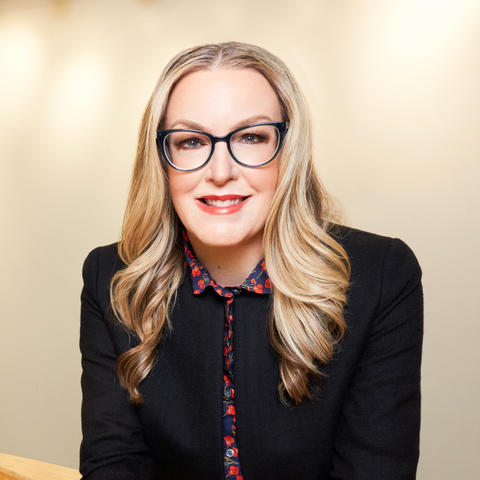Section Branding
Header Content
Kenyan president arrives in Atlanta ahead of Biden talks in D.C.
Primary Content
President William Ruto and first lady Rachel Ruto of the Republic of Kenya met with leaders at the Carter Center and the Centers for Disease Control and Prevention in Atlanta on Monday before convening with other city officials and heading to Washington, D.C., where the East African leader is scheduled for talks with U.S. President Joe Biden about democracy, trade and Haiti on Thursday.
The May 23 visit marks the 60th anniversary of U.S.-Kenya diplomatic relations, according to the White House.
This week’s trip to the U.S. is also the first state visit by a Kenyan in two decades and the first by an African leader since 2008.
In a statement Monday, U.S. Secretary of State Antony Blinken said Ruto’s visit to Atlanta “reflects the city’s growing global importance and underscores its central role in America’s progress towards a more inclusive democracy."
"I welcome President Ruto’s engagements with civic leaders on issues of democratic governance while in Atlanta," Blinken said, "As well as his focus on our people-to-people ties, public health partnerships, educational exchanges, investments in shared prosperity, and his engagements with Atlanta’s African Diaspora.”
A delegation awaited Ruto as his entourage made its way through the circle of flags at the Carter Center Monday afternoon. The receiving line included U.S. Ambassador to Kenya, Meg Whitman, U.S. Rep. Nikema Williams, Jimmy Carter Library and Museum head Meredith Evans and Carter Center CEO Paige Alexander, with Jason Carter representing the Carter family and the Center’s Board of Trustees.
State Department officials, federal agents and dozens of Kenyan media filled the lobby of the library for remarks by Williams, followed by a 16-minute speech by President Ruto and a brief fireside chat with Alexander.
Ruto’s visit is coinciding with, but not a part of, this week’s Carter Center Human Rights Defenders Forum which brings human rights activists from across the globe to share solutions and strategies.
Kenya worked with the Carter Center in 1994 to become one of the first endemic countries to halt transmission of Guinea worm disease. The Center also observed elections there, most recently sending a special mission to scrutinize election technologies in the 2022 Kenyan presidential election, when Ruto was elected.
In his speech at the Carter Center, President Ruto mentioned late civil right icon U.S. Rep. John Lewis (who died in 2020 and was succeeded in Congress by Williams). Ruto alluded to a 1963 relationship between a then-segregated Atlanta and a newly independent Kenya.
According to the Student Nonviolent Coordinating Committee archive, the U.S. State Department brought Kenyan Minister for Home Affairs, Jaramogi Oginga Odinga to Atlanta in December of that year as a "first concrete contact between the American civil rights movement and the newly emerging African states and liberation movements" which led to "SNCC’s adoption of solidarity with colonized peoples around the globe."
Despite the nonprofit group Freedom House scoring Kenya as a "partly free" democracy on the African continent in its 2024 report, the country gained an encouraging 4 points in that survey after exhibiting transparency in its 2022 elections.
Kenya is the seventh most populous country in Africa, with a population of 54 million, which places it between Spain and Italy in comparable size. Although Kenya recognizes democratic elections and principles, the nation has experienced corruption and issues with security forces and terrorism, especially in surrounding countries, where instability is the norm. Seventy-one people were killed and more than 150 injured in Kenya's capital during the Nairobi Westgate Mall attack carried out by Somali militants in 2013.
Over the past six decades, Kenya has maintained its footing in the region, thanks in part to its partnerships with the U.S. and other democracies, Ruto said.
"One of the conversations I will be having in Washington is how America and Kenya can work together to make sure that we don't create a vacuum in Somalia and leave a chance to terrorists."
Ruto also said Kenya should be an example to neighboring South Sudan, which, 13 years after its independence, still lacks a constitutional framework and democratic institutions.
"It is our responsibility as people who have been democratic and believe in freedom and the rule of law, that we support other countries," Ruto said.
"I thank you for the willingness to open up Kenya, to show people what democracy can bring and how it can be successful," Alexander said, after using the phrase "democracy delivers," the name of a recent USAID slogan both she and Ruto repeated during their chat.
That program, like the Carter Center's work, aims to help democracies like Kenya's demonstrate wins and sustain popular support for continued democratic reforms in civil society and beyond.
Alexander closed by thanking Ruto for making the library his first stop on this trip, "coming back circa 60 years from when another delegation came to see what Atlanta had to offer."


